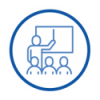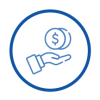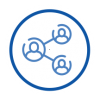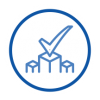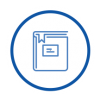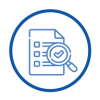PRIORITY 1: Programs, Initiatives, and Strategies
READY FOR KINDERGARTEN
All Maryland students are prepared socially, emotionally, and academically for success in kindergarten.

Provide increased access to early childhood programs through a mixed-delivery system comprised of private and public providers and ensure affordability by subsidizing the cost for families.
Expand early learning hubs, such as Judy and Patty Centers, that utilize a two-generation approach to ensure families are supported in the development of their children ages 0-5.
Develop Early Learning Standards that implement age-appropriate learning practices and materials, and foster high-quality learning environments for children’s social, emotional, and academic growth.
Utilize assessments to monitor readiness and measure the quality of early learning programs to ensure culturally responsive and academically and developmentally appropriate materials and provide resources to support and empower educators to be successful.
Provide increased access to early childhood programs through a mixed-delivery system comprised of private and public providers and ensure affordability by subsidizing the cost for families.
Expand early learning hubs, such as Judy and Patty Centers, that utilize a two-generation approach to ensure families are supported in the development of their children ages 0-5.
Develop Early Learning Standards that implement age-appropriate learning practices and materials, and foster high-quality learning environments for children’s social, emotional, and academic growth.
Utilize assessments to monitor readiness and measure the quality of early learning programs to ensure culturally responsive and academically and developmentally appropriate materials and provide resources to support and empower educators to be successful.
Components of High-Quality Early Learning
Professional and stable teacher workforce
Compensation and preparation that reflects the expertise and importance of the early learning workforce
Effective leadership
Leaders support with lesson planning and curriculum, behavior management, and professional development
Age-appropriate curriculum
Research-based curriculum that is developmentally, culturally, and linguistically relevant for all children
Comprehensive family engagement activities
Family engagement strategies that encourage families to participate in their child’s learning
Multilevel continuous quality improvement system
Programs must constantly monitor, reflect, and revise policies and practices to maintain quality
Sustainable and sufficient set of funding mechanisms
Programs need to be able to access funding that supports the actual cost of operation
